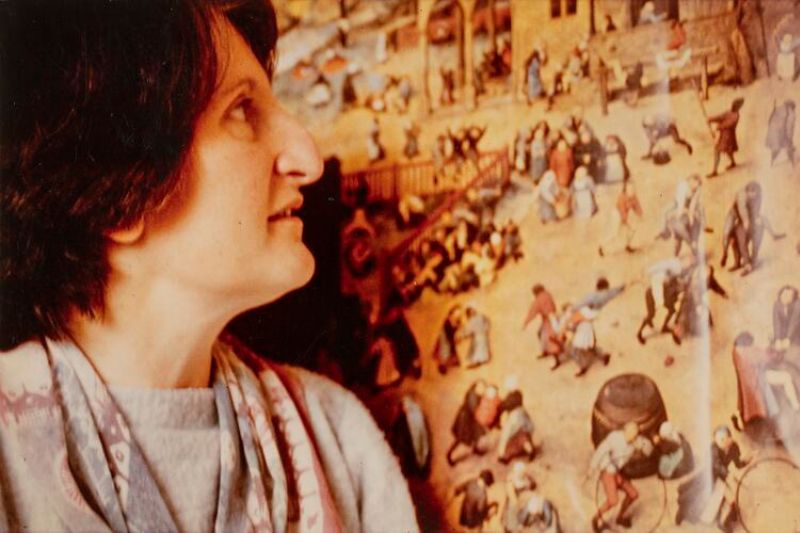Where would we be without our friends? I think most people would agree that children are in a separate category, but good friends sustain us for decades through good times and bad and steer us through periods of change and crisis. One of the many downsides of old age is the loss of friends: they become ill and die. What to do then? How to cope?

My friend June Factor died on April 12. During a recent visit from Greece, I saw June at home: it was a shock to see her so physically reduced, but a relief to find her spirit quite undimmed: she was always a life-enhancer. She and I had been introduced by the academic and writer Gwyn Dow in 1994, and remained good, if usually long-distance friends, for the thirty years since.
Born in Lodz, Poland, in 1936, June migrated to Melbourne as a baby with her Yiddish-speaking parents. She always spoke very lovingly of Sol and Maryam, and of the support they gave her later when she was a single mother of three young children. Her father, unlike some of the family’s relatives, had realised the threat Hitler posed to European Jews, and so organised the relocation to the Melbourne suburb of Carlton. June had the inestimable benefit of a happy home life, and parents who had a close relationship: My parents were like glue, really, she said during that last visit.
Those same parents must have been very proud of their high-achieving daughter, who became an academic, a writer, and a political activist, as well as an expert on the folklore of Australian children. She was Senior Lecturer in English at the Institute of Early Childhood Development and wrote many books for children: it is likely that a vast number of Australian households had, and still have, her books on their shelves. My own children, reared in Greece, were fans of Far Out, Brussel Sprout, among other titles that June had supplied. Their childhood is very much a thing of the past, but they still remember that particular reading experience.
It was no surprise, then, that June became the founder of the movement 'Befriend a Child in Detention', to which the public responded in whole-hearted fashion. Part of the exercise was to send these blameless children, victims of heartless political policies, letters, cards and books in an effort to cut down their fear and isolation. June was also for many years the President of the Friends of the ABC, and always a staunch defender of civil liberties. She was also a very proud mother and seemed to have been content to slip away from life after a visit from her American-based daughter and her two grandchildren.
As a writer, June knew about dedication and the necessity to stay the course, no matter how long. Her last book, Soldiers and Aliens: Men in the Australian Army’s Employment Companies During World War II, took at least ten years in the writing, and was in part a tribute to her father, who was desperate to enlist during the war, but had to be content with doing his bit in an auxiliary service. There were 4000 such men, non-British subjects, who were essential to the war effort, but had been largely forgotten. June’s prize-winning effort rescued them from obscurity, brought them into the public eye and gave them their due at last.
June also had a great gift for friendship and was always generous in giving her friends any support they might need at any given time. She was certainly a faithful and attentive friend to me, even though we were most often on opposite sides of the world. There will be a gap in my life from now on: I will miss the emails, the cards, the entertaining and stimulating conversations we had during our Melbourne reunions.
'How to cope, then, with such a loss? We simply have to re-shape ourselves somehow and continue living while being thankful for the life of the remarkable June Factor.'
When June’s health began to decline, the extent of her talent for friendship was demonstrated in the number of visitors who went in rostered and orderly fashion to her house in Ivanhoe, Melbourne. One friend in particular organised this venture, co-ordinating with June’s Sydney-based son and daughter-in-law, so that June and her carers would not be overwhelmed by many people arriving at once. The famous Dr Johnson said ‘A man, Sir, should keep his friendships in constant repair.’ June’s friendship tool-box, it seems to me, was always handy.
How to cope, then, with such a loss? We simply have to re-shape ourselves somehow and continue living while being thankful for the life of the remarkable June Factor.
Gillian Bouras is an expatriate Australian writer who has written several books, stories and articles, many of them dealing with her experiences as an Australian woman in Greece.
Main image: June Factor (Museums Victoria)